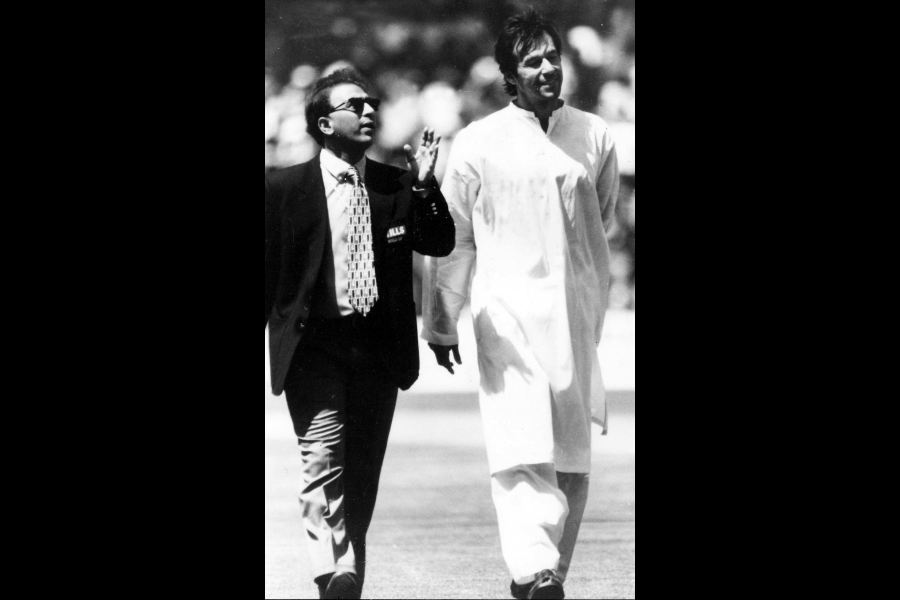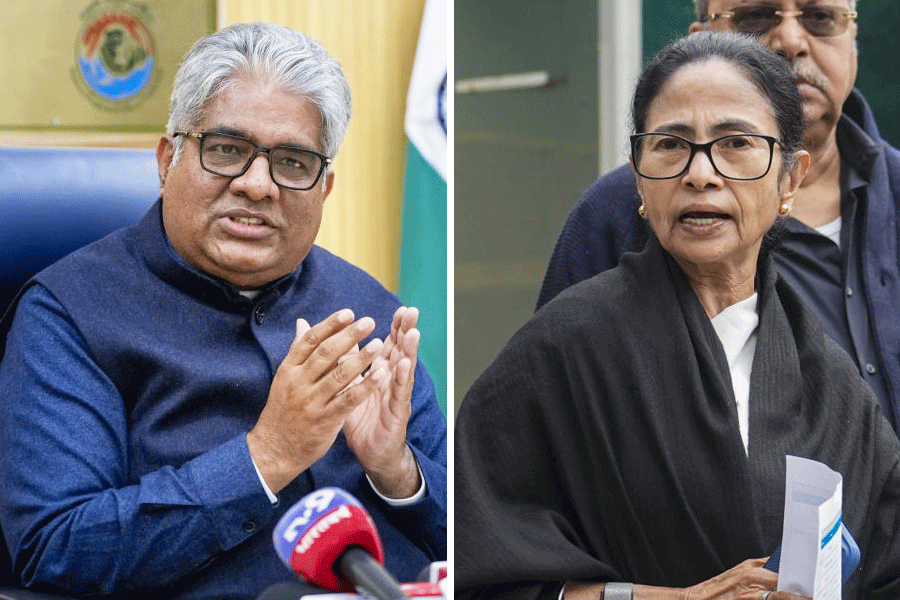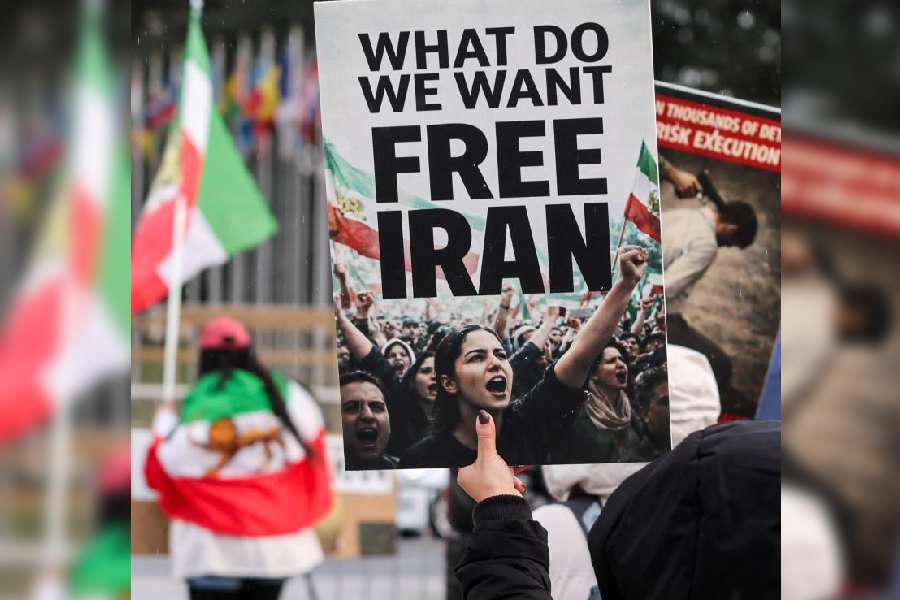.jpg)
| TV’S EQUIVALENT OF A BLANK PAGE |
| NDTV, the news channel that was scheduled to air India’s Daughter, on Sunday night screened a flickering lamp against a dark backdrop with the words “India’s Daughters” — a play on the title of the documentary. The “tribute”, which did not have any sound bite but ran a scroll featuring comments from those who had watched the film and an appeal from the Editors’ Guild to revoke the ban, was shown for an hour from 9pm to 10pm — when the documentary was originally scheduled to be telecast. A magistrate had last week issued a restraint order on the telecast in response to a plea from Delhi police. The NDTV Group’s executive co-chairperson, Prannoy Roy, declined comment on Sunday night. But channel sources said it had been decided to protest the government’s stand against the film’s telecast in the “best possible way”. During the Emergency, some newspapers used to leave a blank space to protest the censoring and convey to the readers that the original content had been tampered with. Sumi Sukanya |
New Delhi, March 8: If a magistrate last week banned the telecast of India's Daughter, the documentary on the December 16 gangrape and murder, the highest court of the land had allowed a journalist 34 years ago to interview two murderers whose brutality on two young siblings had sent shock waves across the country.
In a striking coincidence, that journalist was Prabha Dutt, the mother of Barkha Dutt, the television journalist and consulting editor with NDTV, the very channel that was scheduled to telecast the documentary tonight but was thwarted by the ban.
The first Tihar interview had come under Supreme Court directions in 1982 after the jail's refusal to let Prabha Dutt quiz Billa and Ranga, who had kidnapped, tortured and killed schoolchildren Geeta and Sanjay Chopra in 1978.
Prabha Dutt had moved the apex court which, in July 1981, allowed her and others to interview the duo.
In July 1981, ruling on Prabha Dutt's petition, the Supreme Court had said: 'Rule 549(4) of the jail manual provides that every prisoner under a sentence of death shall be allowed interviews and other communications with relatives, friends and legal advisers.'
It had added: 'Journalists or newspapermen are not expressly referred to in Clause (4) but that does not mean that they can always and without good reasons be denied the opportunity to interview a condemned prisoner. There is no reason why newspapermen, who could be termed as friends of the society, be denied permission.'
The apex court clarified that a prisoner could be interviewed only if he were willing.
Eventually, only Billa agreed to the interview, which was carried out by Prabha Dutt and a few other journalists on the eve of the hangings in 1982.
Rapist and death-row convict Mukesh Singh's interview for the documentary India's Daughter was, therefore, the second involving a Tihar jail inmate that had been officially sanctioned. And the first permitted by the Union home ministry.
Although the onus for deciding requests for inmate interviews lies with the jail authorities, the home ministry got into the picture in Mukesh's case because the filmmaker was a foreigner.
'This was the first time the home ministry gave a no-objection certificate to interview a convict,' a senior Tihar official said.
In 2011, a Kashmiri journalist had posed as a relative to meet Parliament attack convict Afzal Guru, who was then in solitary confinement at Tihar.
After the interview was published, a jailor was transferred and a list drawn up of the death-row prisoner's relatives. The Valley media continued to publish reports based on Afzal's letters to his family and friends, though.
In the 1980s, a reporter had interviewed 'Bikini killer' Charles Sobhraj, convicted of killing western tourists for gain, through his lawyer when he was in Tihar.
'The journalist secretly sent a questionnaire to Sobhraj through his lawyer and got his interview,' another Tihar official said.
Sobhraj's lawyer was issued a stern warning but the master criminal continued to give Tihar a headache. On March 16, 1986, he served drug-laced sweets to jail staff on the pretext of celebrating his birthday, took the keys when they passed out, and coolly walked out.
Delhi police are planning to write to Leslee Udwin, the British maker of India's Daughter, asking her to present herself before them.
The Indian government accuses her of flouting her agreement with the jail authorities.
The government also accuses the film of unwarrantedly giving Mukesh a platform to air his inflammatory, misogynistic views.

.jpg)








